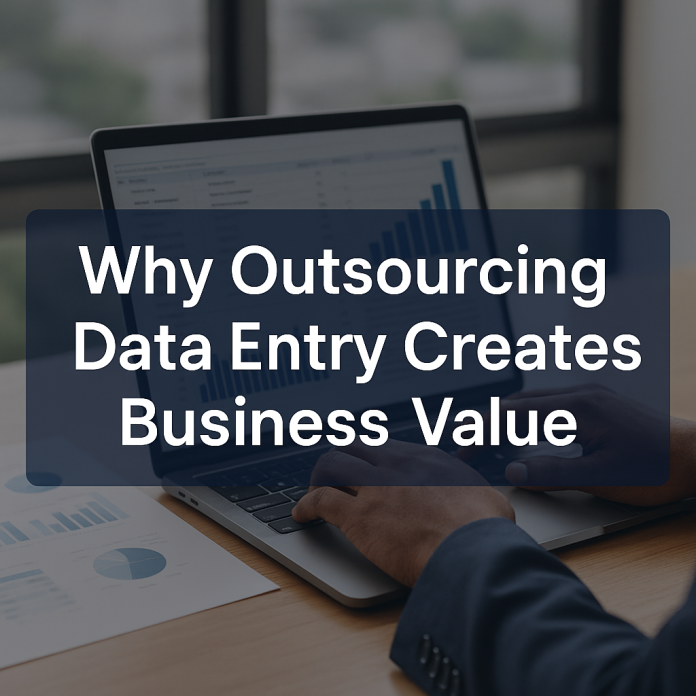Every business generates vast amounts of information daily and managing that data is vital for making more intelligent decisions, ensuring legal compliance, and maintaining smooth workflows. Handling all those entries in-house can slow teams down, push up costs and increase mistakes. Outsourcing data entry to a specialist provider helps you stay focused on growth areas while keeping expenses predictable and data accurate.
1. Significant Cost Reduction
Outsourced data entry lets you avoid salaries, benefits, hardware, software licences and training costs for an internal team. Providers charge per task, often at competitive rates thanks to optimised processes and regional advantages. You can reinvest these savings into marketing, product development or staff upskilling. A reputed outsourcing partnership can reduce overall data-processing expenses by up to 60%, freeing funds for high-impact projects that move the business forward.
2. Access to Skilled Professionals and Expertise
When you engage a virtual admin assistant from a reputable provider, you tap into talent trained for diverse data tasks—from simple form inputs to complex database management. Outsourcing firms carry out ongoing training programs and quality audits to make sure their teams stay current with the industry best practices. This support help maintain accuracy and curtail onboarding time compared with building a dedicated in-house team from ground up.
3. Improved Accuracy and Data Quality
High-quality data underpins robust strategy. Errors in manual entry can lead to faulty reports, poor customer interactions and compliance issues. Outsourcing companies use double-keying, multi-level validations, and tools such as OCR and machine learning to flag anomalies. With accuracy rates often above 99%, you receive clean, reliable data ready for analysis, reducing the likelihood of costly rework or misinformed decisions.
4. Enhanced Productivity and Focus on Core Business
By shifting routine data tasks to specialists, your employees can concentrate on innovation, sales and customer care. Some clients engage a virtual personal assistant who not only handles data updates but also organises calendars and prepares reports. It helps uplift team morale and deliverables, as the team can focus on critical work that pulls revenue.
5. Scalability and Flexibility
Data volumes can surge during product launches or seasonal promotions. Outsourcing makes it easy to hire virtual assistant staff on demand, scaling capacity up or down without overheads. This adaptability ensures smooth operations during peak periods—such as end-of-financial-year reporting—without the delays of recruiting or the costs of excess headcount in quieter months.
6. Faster Turnaround Times
Speed matters when deadlines loom. Outsourcing firms leverage teams across multiple time zones and utilise workflow automation to maintain continuous data flow around the clock. Blended with cloud integration, this ongoing process eliminates backlogs to ensure that information is available to decision-makers without delay. Many organisations see project completion times reduced by up to 50%, enabling more agile responses to market shifts.
7. Access to Advanced Technology and Automation
Top providers invest in leading-edge solutions—AI-powered extraction, natural language processing and real-time validation dashboards. By using a virtual assistant service, you benefit from these platforms without significant capital outlays or maintenance worries. The result is faster, more consistent processing and richer insights, boosting your return on investment in both time and quality.
8. Risk Mitigation and Compliance
Data breaches and regulatory fines can damage both budget and reputation. Outsourcing firms enforce strict security measures—such as encrypted transfers, role-based access, and regular penetration tests—and maintain certifications for standards like GDPR and HIPAA. Their dedicated incident-response teams and audit trails help you meet legal obligations, giving you peace of mind that sensitive information is handled correctly.
9. Consistent Quality and Reliability
With clear service-level agreements (SLAs), outsourcing partners guarantee error thresholds, turnaround times and reporting formats. Dedicated teams familiarise themselves with your processes to keep every batch consistent. They undergo regular reviews and act on feedback, so you consistently receive dependable, high-quality data.
10. Enhanced Business Focus and Strategic Growth
Outsourcing data entry allows leadership to focus on strategic priorities, such as customer experience, new markets, and product innovation.
You can channel resources freed from admin work into campaigns or R&D. Companies report that this shift helps accelerate revenue growth and maintain a competitive edge, as they devote full attention to areas that truly matter.
Final Thoughts
Entrusting data entry to specialists offers clear gains: lower costs, higher accuracy, rapid turnarounds and enhanced security. By leveraging expert teams, modern tools and flexible resourcing, businesses can stay agile, make better decisions and concentrate on growth levers—turning data entry from a burden into a catalyst for success.


